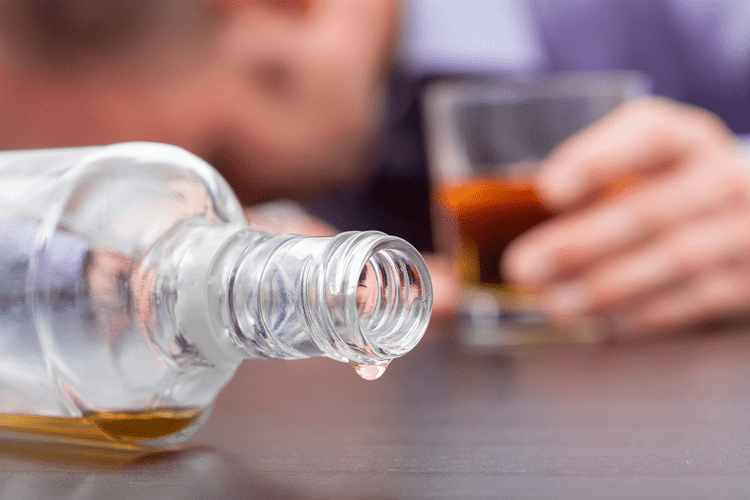Content
It found that the risk of an AUD is highest among those with intermittent explosive disorder, dysthymia , ODD , bipolar disorder, social phobia, and any anxiety disorder. Make no mistake, problem drinking is still considered an unhealthy relationship with alcohol. That is because even though these individuals may not drink every day, they act out in destructive behaviors when they do drink. For example, they may have difficulty controlling the amount that they drink after they start drinking. Problem drinkers may binge, drink and drive, say hurtful things to their loved ones, and more. These frequent drunk episodes and dangerous patterns of binge drinking can seriously disrupt a person’s life.

It also is a problem if you can’t stop drinking and it harms your relationships. It can cause you to be unable to function at work and in other areas of your life.
What Differentiates Alcohol Abuse From Alcoholism?
Verywell Mind articles are reviewed by board-certified physicians and mental healthcare professionals. Medical Reviewers confirm the content is thorough and accurate, reflecting the latest evidence-based research.
- This compound is processed further into smaller molecules, such as β-endorphin and adrenocorticotropic hormone .
- A combination of medications, behavioral therapy and support can help you or a loved one recover.
- Living with alcohol abuse means recognizing the triggers that make you want to drink.
One alcoholic drink is defined as a 12-ounce bottle of beer; a 5-ounce glass of wine; or 1.5 ounces of 80-proof distilled spirits . Alcoholics prefer to socialize with other heavy drinkers who they can count on to not judge their drinking and self-destructive behavior. The erosion of self-esteem drives alcoholics to drink with every difficult decision or challenge in their lives. They feel they can’t function without the drinking becomes a regular activity and clearly a dependency that will not be alleviated without taking drastic, life-changing measures. Alcoholics tend to betray their secret by letting down their employers and co-workers, family and friends and those who are counting on them by not showing up for important obligations or failing to deliver on promises. Missing work and calling in sick are signs of growing addiction to alcohol.
Does Alcohol Impact Everyone The Same Way?
Changes in body fat to water ratio alter the pharmacokinetics of alcohol consumption in the elderly. Clearance is decreased as a result of decreased liver blood flow and the decrease in liver mass, which results in higher blood alcohol concentration with similar alcohol ingestion. The same quantity of ingested alcohol in an older person leads to a higher blood alcohol concentration than it does in a younger person, because alcohol is water soluble and body water is relatively reduced in the elderly. These changes explain the paradox that older people appear to be drinking the same amount and yet are getting more negative effects from the alcohol. Alcohol Awareness Week aims to get people talking about alcohol in terms of health hazards, social issues, and how alcohol is ubiquitous in society. Several drug practitioners have written papers about the various harmful consequences of alcohol and dependence as part of Priory’s advocacy for alcohol awareness.
If a health worker suspect alcohol may be a problem, they may ask a series of questions. If the patient answers in a certain way, the doctor may then use a standardized questionnaire to find out more. Alcohol dependence can take from a few years to several decades to develop. For some people who are particularly vulnerable, it can happen within months. According to the National Institute of Health , in 2015, 15.1 million American adults (6.2 percent of the population) had an alcohol use problem. If you buy through links on this page, we may earn a small commission. MedlinePlus links to health information from the National Institutes of Health and other federal government agencies.

The liver metabolizes the majority of alcohol that has been consumed. Long-term use of alcohol Alcohol detoxification and excessive drinking can put strain on this organ, which can cause related health issues.
If you think you might have an AUD, see your health care provider for an evaluation. Your provider can help make a treatment plan, prescribe medicines, and if needed, give you treatment referrals. If you have any of these symptoms, your drinking may already be a cause for concern. All of the information on this page has been reviewed and verified by a certified addiction professional. Alcoholism treatment professionals are seeing some type of trauma in virtually every patient that they treat. There are many forms of trauma, but they all painful events where the victim didn’t have an empathetic witness.
The Definition Of Alcoholism
Alcohol-related deaths number more than 3 million per year, nearly 6% of all deaths worldwide. For adults between years of age, that percentage rises to about 25% of deaths due to alcohol. Long-term ingestion results in the synthesis of more glutamate receptors. When alcohol is withdrawn, the central nervous system experiences increased excitability. Persons who abuse alcohol over the long term are more prone to alcohol withdrawal syndrome than persons who have been drinking for only short periods. Brain excitability caused by long-term alcohol ingestion can lead to cell death and cerebellar degeneration, Wernicke-Korsakoff syndrome, tremors, alcoholic hallucinosis, delirium tremens, and withdrawal seizures. Opiate receptors are increased in the brains of recently abstinent alcoholic patients, and the number of receptors correlates with cravings for alcohol.
What's the Difference Between Caring for and Controlling an Alcoholic? #codependency #alcoholism http://t.co/m6WoJnbwql
— My Codependency (@MyCodependency) July 18, 2014
Accidents while under the influence of alcohol are rare for social drinkers but almost unavoidable for alcoholics who drive. Alcoholics end up in alcohol-related accidents, while social drinkers do not. Social drinkers seldom rationalize drinking and driving, because they know the potential dangers of this choice. Alcoholics may know this intellectually, but alcoholic consumption neutralizes common sense. Social drinkers choose the times they drink and not drink whatever the time. They do not let it interfere with important work, family commitments or important obligations.
Symptoms Of Alcohol Abuse
Ethanol, or ethyl alcohol, is the intoxicating ingredient in alcoholic beverages that produces the feeling of being drunk. The main types of alcoholic beverages include beer, wine, and liquor.
You can lose friendships or have relationship issues by being a heavy drinker, but you do not stop drinking. The sooner you recognize there may be a problem and talk to your healthcare provider, the better your recovery chances. Having repeated problems with work, school, relationships or the law because of drinking. So, where does that leave folks who wonder whether their drinking habits might signal a serious concern?
For example, a value of 3.6 for bipolar disorder indicates that illicit drug dependency became more than three time more likely in individuals with bipolar disorder than those without. The risk of an alcohol use disorder is highest in individuals with intermittent explosive disorder, dysthymia, ODD, bipolar disorder and social phobia. In 2013, 45.8 percent of liver disease deaths among Americans ages 12 and older involved alcohol. Alcohol abuse increases the risk of developing cancers of the mouth, esophagus, liver and breast. Heart disease is currently one of the leading causes of death for alcoholics. An estimated 88,000 people die each year from alcohol-related causes. It is the fourth leading preventable cause of death in America.
Who Is Alcohol Dependent?
An intervention from loved ones can help some people recognize and accept that they need professional help. If you’re concerned about someone who drinks too much, ask a professional experienced in alcohol treatment for advice on how to approach that person. If you feel that you sometimes drink too much alcohol, or your drinking is causing problems, or your family is concerned about your drinking, talk with your doctor. Other ways to get help include talking with a mental health professional or seeking help from a support group such as Alcoholics Anonymous or a similar type of self-help group.
However, problem drinking has the capability to turn into alcoholism over time. If you think your drinking is out of control, it’s important to seek help before it gets worse. The hormonal stress response is mediated by a system known as the hypothalamic–pituitary–adrenocortical axis. Within this system, stress induces the release of the hormone corticotrophin-releasing factor from a brain area called the hypothalamus. CRF acts on the pituitary gland located directly below the hypothalamus, where it initiates the production of a molecule called proopiomelanocortin .
Some research studies indicate that having bariatric surgery may increase the risk of developing alcohol use disorder or of relapsing after recovering from alcohol use disorder. People with a history of emotional or other trauma are at increased risk of alcohol use disorder.

Above all, don’t feel guilty or responsible for the problem drinker’s behavior. Avoid emotional appeals that only add to the problem drinker’s feelings of guilt and increase their compulsion to drink or use other drugs. You may also benefit from joining a group such as Al-Anon, a free peer support group for families coping with alcoholism. Listening to others with alcohol abuse vs alcoholism the same challenges can serve as a tremendous source of comfort and support. If you find yourself rationalizing your drinking habits, lying about them, or refusing to discuss the subject, take a moment to consider why you’re so defensive. If you truly believe that you don’t have a problem, you shouldn’t have a reason to cover up your drinking or make excuses.
Prevention And Risk Factors
“Alcoholism” is a term often used to describe someone with a severe form of alcohol dependence. Many times people use it to refer to someone who simply drinks too much. Alcoholism is more severe than simply having a bad weekend, though. More severe alcohol use disorder may mean that you struggle when it comes to choosing to use alcohol and that your misuse of alcohol affects many aspects of your life. In cases of severe misuse, there is a physical dependence on alcohol, and quitting without the proper medical oversight can be extremely physically and emotionally difficult. If you’re looking for a difference between alcohol dependence and alcoholism, you may be surprised to find that there are more similarities than differences between the two.
Discover how we’re providing personalized treatment based on breakthrough research. Zironi I, Burattini C, Aicardi G, Janak PH. Context is a trigger for relapse to alcohol. Valdez GR, Zorrilla EP, Roberts AJ, Koob GF. Antagonism of corticotropin-releasing factor attenuates the enhanced responsiveness to stress observed during protracted ethanol abstinence. Naltrexone decreases craving and alcohol self-administration in alcohol-dependent subjects and activates the hypothalamo-pituitary-adrenocortical axis.
Alcohol dependence is characterized by fundamental changes in the brain’s reward and stress systems that manifest as withdrawal symptoms when alcohol consumption is stopped or substantially reduced. These changes also are purported to fuel motivation to reengage in excessive drinking behavior.